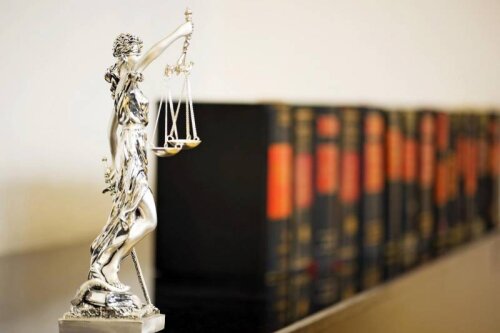Best Oil, Gas & Energy Lawyers in France
Share your needs with us, get contacted by law firms.
Free. Takes 2 min.
Or refine your search by selecting a city:
List of the best lawyers in France
About Oil, Gas & Energy Law in France
Oil, Gas & Energy law in France encompasses a wide range of regulations and legal aspects governing the exploration, production, distribution, and sale of energy resources. France has a well-developed energy sector, focusing significantly on nuclear power, but also increasingly exploring renewable energy sources and sustainable practices. France's legal framework in this sector is designed to regulate the market, ensure energy security, encourage sustainable development, and comply with European Union directives.
Why You May Need a Lawyer
Legal expertise in the Oil, Gas & Energy sector can be vital for a variety of reasons. You might need a lawyer if you are dealing with complex contractual arrangements, such as joint ventures or licensing agreements. Regulatory compliance is another area where legal advice is essential, especially given the robust regulatory environment governing energy production and consumption in France. Environmental considerations, such as impact assessments and mitigation strategies, often require legal guidance. Additionally, if you are involved in disputes or litigation over energy rights, infrastructure projects, or investment agreements, having a legal expert by your side can be crucial.
Local Laws Overview
The French legal system governing the energy sector is composed of national regulations and European Union directives. Key national frameworks include the Energy Code, the Environmental Code, and specific laws targeting the nuclear, renewable, and fossil fuel sectors. France has set ambitious targets for reducing greenhouse gas emissions and increasing the share of renewable energy, influencing regulatory changes and compliance requirements. The government plays a significant role in regulating the energy market, ensuring fair competition, and promoting sustainable practices.
Frequently Asked Questions
What are the main regulatory bodies for energy in France?
The main regulatory body for energy in France is the Commission de Régulation de l'Énergie (CRE), which oversees electricity and natural gas markets. Other important bodies include the French Ministry for the Ecological Transition and the Agency for Ecological Transition (ADEME).
How does France's energy mix compare with other EU countries?
France is unique in its reliance on nuclear power, generating about 70% of its electricity from this source. In contrast, other EU countries depend more heavily on coal and natural gas, although there is a common trend towards increasing the share of renewables.
What are the recent trends in renewable energy in France?
France is focusing on expanding its renewable energy capacity, particularly in wind, solar, and bioenergy. The country aims to increase its share of renewables to 33% of total energy consumption by 2030.
What legal challenges might arise in the oil and gas sector?
Common legal challenges include managing environmental compliance, negotiating exploration and production contracts, and addressing public opposition to fossil fuel projects.
Are there incentives for investing in renewable energy?
Yes, the French government offers various incentives for renewable energy investments, including feed-in tariffs, tax credits, and grants to encourage sustainable energy development.
What are the environmental regulations for energy projects?
Energy projects must comply with rigorous environmental regulations, including conducting impact assessments, adhering to emissions standards, and ensuring community engagement and transparency.
How does France address energy efficiency?
France has implemented several measures to improve energy efficiency, such as the Energy Efficiency Certificate program, which incentivizes businesses to reduce their energy consumption.
Are there any legal provisions for energy security in France?
Energy security is a key concern, with legal measures in place to ensure a stable supply of energy, including strategic reserves and agreements for international cooperation.
What role do local communities play in energy decisions?
Local communities are increasingly involved in energy projects through public consultations and partnerships, ensuring that development respects local interests and environmental standards.
Can foreign companies invest in France's energy sector?
Yes, foreign investment is welcome in France's energy sector, though it may be subject to certain restrictions and regulatory approvals to ensure public interest and national security.
Additional Resources
For additional support and information, consider reaching out to the following organizations:
- Commission de Régulation de l'Énergie (CRE)
- Ministry for the Ecological Transition
- Agency for Ecological Transition (ADEME)
- French Environment and Energy Management Agency
These bodies can provide guidance on regulations, compliance, and policy implementations in the energy sector.
Next Steps
If you require legal assistance in the Oil, Gas & Energy sector, it is advisable to consult with a lawyer who specializes in energy law. They can provide tailored advice based on your specific situation and ensure that you comply with all relevant regulations and requirements. Start by searching for reputable law firms with expertise in energy law, schedule consultations to discuss your needs, and choose a legal partner who can support your objectives effectively.
Lawzana helps you find the best lawyers and law firms in France through a curated and pre-screened list of qualified legal professionals. Our platform offers rankings and detailed profiles of attorneys and law firms, allowing you to compare based on practice areas, including Oil, Gas & Energy, experience, and client feedback.
Each profile includes a description of the firm's areas of practice, client reviews, team members and partners, year of establishment, spoken languages, office locations, contact information, social media presence, and any published articles or resources. Most firms on our platform speak English and are experienced in both local and international legal matters.
Get a quote from top-rated law firms in France — quickly, securely, and without unnecessary hassle.
Disclaimer:
The information provided on this page is for general informational purposes only and does not constitute legal advice. While we strive to ensure the accuracy and relevance of the content, legal information may change over time, and interpretations of the law can vary. You should always consult with a qualified legal professional for advice specific to your situation.
We disclaim all liability for actions taken or not taken based on the content of this page. If you believe any information is incorrect or outdated, please contact us, and we will review and update it where appropriate.
Browse oil, gas & energy law firms by city in France
Refine your search by selecting a city.
















